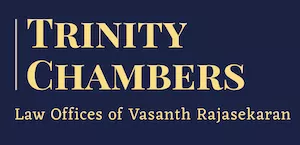- in European Union
- with readers working within the Law Firm industries
- in European Union
- with readers working within the Metals & Mining industries
- within Insolvency/Bankruptcy/Re-Structuring, Government, Public Sector and Corporate/Commercial Law topic(s)
INTRODUCTION
In a significant ruling in Suresh Shah v. Tata Consultancy Services Ltd., the Delhi High Court examined the nature and scope of the provisions contained in Section 2(1)(f) of the Arbitration and Conciliation Act, 1996 ("Arbitration Act"/ "the Act"). The High Court held that the provisions under Section 2(1)(f) of the Act are non-derogable in nature, and the applicability of the same cannot be excluded even with the consent of the parties. In this article, we navigate through the facts and findings of the High Court of Delhi.
BACKGROUND
The dispute arose from cross-petitions filed under Section 34 of the Act challenging two arbitral awards dated 16 December 2016 and 14 January 2017. Mr. Suresh Shah ("Petitioner"), a habitual resident of Kenya, had entered into a commercial lease agreement with Tata Consultancy Services Limited ("Respondent") for certain premises in India. The arbitration proceedings were initiated following disagreements between the parties over the lease, with subsequent awards being contested on various grounds.
A preliminary objection was raised by the Petitioner, contending that the arbitration proceedings qualified as ICA under Section 2(1)(f) of the Act. Thus the scope of challenge to the awards was restricted to the grounds specified under the amended Section 34(2A) of the Act. The Respondent, however, argued that the proceedings were not ICA, given that the parties had consented to a domestic arbitration framework and conducted themselves in a manner inconsistent with ICA principles.
KEY ISSUES ADDRESSED
The judgment revolved around two central issues:
- Whether the arbitral proceedings constituted International Commercial Arbitration under Section 2(1)(f) of the Act?
- Was the Petitioner's delayed assertion of ICA status permissible under the Act's procedural framework, particularly Section 34(3), which prescribes strict timelines for challenging arbitral awards?
COURT'S FINDINGS
On the nature and scope of Section 2(1)(f) of the Act
The High Court extensively analysed Section 2(1)(f) of the Act, which defines ICA as arbitration involving at least one party who is:
- A national or habitual resident of a country other than India;
- A body corporate incorporated in a foreign country;
- A company or entity whose central management is based outside India; and/ or
- A foreign government.
The High Court observed that the nationality and habitual residence of Mr. Suresh Shah in Kenya brought the arbitration squarely within the ambit of ICA. It was noted that the Respondent had itself acknowledged Mr. Shah's foreign residency during the arbitral proceedings by seeking interim relief under Section 17 of the Act, based on his non-resident status. Consequently, the Respondent could not later assert ignorance of the Petitioner's nationality or residence.
The Hig Court reiterated that statutory provisions like Section 2(1)(f) are foundational to the arbitration framework and are non-derogable. Unlike procedural provisions, these definitions are sacrosanct and cannot be overridden by the parties' conduct or mutual consent. Relying on precedents such as Amway India Enterprises Pvt. Ltd. v. Ravindranath Rao Sindhia1, the High Court clarified that ICA status is determined by the nationality or residence of the parties, regardless of the nature of the underlying transaction or the manner of arbitration.
On the issue of limitation
The Respondent contended that the Petitioner's claim of ICA status was raised belatedly seven years after the rendering of the arbitral awards and therefore barred under the strict timelines prescribed by Section 34(3) of the Act. However, the High Court rejected this argument, stating that jurisdictional issues, particularly those rooted in statutory interpretation, can be raised at any stage of the proceedings.
Citing the Supreme Court's decisions in Yeswant Deorao Deshmukh v. Walchand Ramchand Kothari2 and K. Lubna v. Beeevi3, the Court held that jurisdictional challenges based on statutory provisions constitute pure questions of law. As such, they are not bound by procedural timelines, provided the factual foundation for the claim has been established earlier. The High Court emphasised that the question of whether the arbitration was ICA went to the root of the tribunal's jurisdiction and was thus non-waivable.
On Party Autonomy vs. Statutory Limitations
One of the Respondent's key arguments was that the parties had, by mutual conduct, derogated from ICA principles by accepting the appointment of an arbitrator by the Delhi High Court under Section 11(6) of the Act—a provision applicable to domestic arbitrations. The Respondent further argued that the Petitioner had failed to challenge this appointment during the arbitral proceedings, effectively waiving any claim to ICA status.
The High Court dismissed this argument, reaffirming the distinction between derogable and non-derogable provisions under the Act. While procedural matters like the mode of arbitrator appointment can be altered by party agreement, the statutory definition of ICA under Section 2(1)(f) is non-derogable. The High Court emphasised that no amount of party autonomy can override the basic structure of arbitration law, which ensures consistency and predictability in the classification of disputes.
On the implications for the scope of challenge
Having concluded that the arbitration qualified as ICA, the High Court noted that the scope of challenge to the awards was significantly restricted under the amended Section 34(2A). Specifically, patent illegality, a ground commonly invoked in domestic arbitrations, was not available for ICA awards.
COMMENTS
By affirming that Section 2(1)(f) of the Act is non-derogable and cannot be excluded even with the consent of the parties, the High Court has reinforced the foundational principles of arbitration law in India. This judgment strikes a crucial balance between party autonomy and statutory mandates, ensuring that the classification of an arbitration as an International Commercial Arbitration (ICA) remains consistent and predictable, regardless of party conduct or procedural deviations.
* The authors are advocates at Trinity Chambers, Delhi.
Footnotes
1 (2021) 8 SCC 465.
2 1950 SCR 852.
3 (2020) 2 SCC 524.
The content of this article is intended to provide a general guide to the subject matter. Specialist advice should be sought about your specific circumstances.



